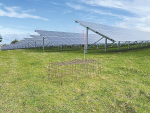OPINION: When there is new evidence, good leaders change course.
But this Government is refusing to listen. The Parliamentary Commissioner for the Environment recently issued warnings about New Zealand’s overreliance on exotic forestry through the Emissions Trading Scheme (ETS).
Yet still, the Government presses on with its current approach. With the lack of a credible climate policy and ignoring the advice of officials, National is allowing the rate of farm-to-forest conversions to continue. It speaks of pure arrogance and will lead to worse outcomes.
The high rate of conversions is a problem for two main reasons:
It’s devastating for rural communities. As farms are sold off and converted to carbon forests, jobs vanish. It creates a domino effect where families leave, and local schools, shops, and essential services shut down, and it has a real toll on mental health and wellbeing.
The Emissions Trading Scheme (ETS) has become the Government’s only real climate lever, and it’s misfiring. The scheme rewards conversions of farmland into fast-growing pine forests because it can be more profitable than producing food.
The Commissioner for the Environment Simon Upton said New Zealand’s “tree planting scheme” is doing little to genuinely cut planet-heating gases, warning that the ETS is built on a “deeply flawed assumption” that carbon dioxide in the atmosphere can be offset by carbon storage in forests.
Emissions offsetting only works if the forests stay there forever to match the life of the carbon emissions, but this isn’t guaranteed. Phasing forestry out of the ETS, as he recommended, would help address this issue. It would protect rural communities, stabilise the carbon market, increase pressure to invest in clean technologies, and refocus forestry to strengthen biodiversity, land stability and native reforestation.
However, instead of heeding expert advice, the Government has decided to trudge on with their weak rules. They’ve announced changes to the amount of farmland that can be converted to exotic forestry, due to come into effect in late 2025.
The new rules still allow up to 25% of a farm’s productive land to be converted and they keep the door open for landowners to have land use classifications reassessed. These superficial tweaks do little to protect our farms and address the rate of farm conversions to forestry, and even worse, they have triggered a land grab. We’re seeing a rush to convert farms before the October 2025 deadline hits. National says it wants to “strike a balance” but their messaging isn’t matching the action.
The Government likes to blame Labour for the rate of farm conversions to forestry, but the facts don’t back that up. While we didn’t get it completely right, Labour’s One Billion Trees programme didn’t encourage planting on productive land, and in 2023 we gave local communities a say over whether conversions could proceed. Now, hard data shows that in 2022 carbon prices hit record highs on the market which led to a surge in afforestation — most of it in fast-growing exotic species like pine — and this trend is continuing.
The current trend of afforestation is unsustainable, and this Government needs to make the right choice by taking official advice to phase out forestry offsets and invest in landowner support to integrate trees into farms without wiping them out entirely. If they don’t change course now, we’ll be stuck with the consequences for generations.
‘Emissions trading’ is a market-based approach for reducing emissions of greenhouse gases. The ETS puts a price on emissions, by charging certain sectors of the economy for the greenhouse gases they emit.
Jo Luxton is Labour spokesperson for agriculture, biosecurity and rural communities.


















